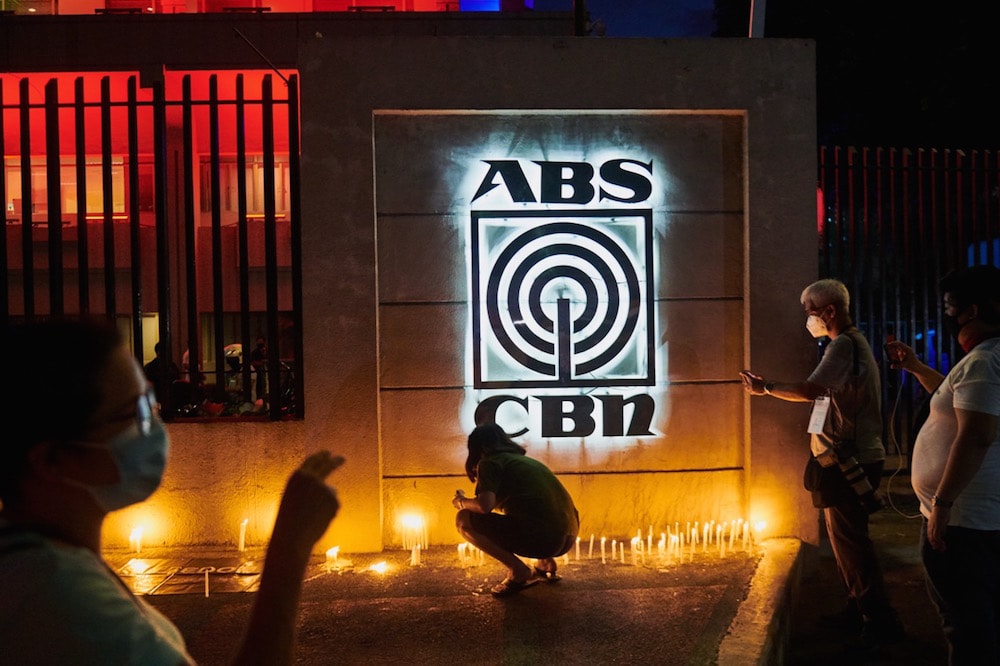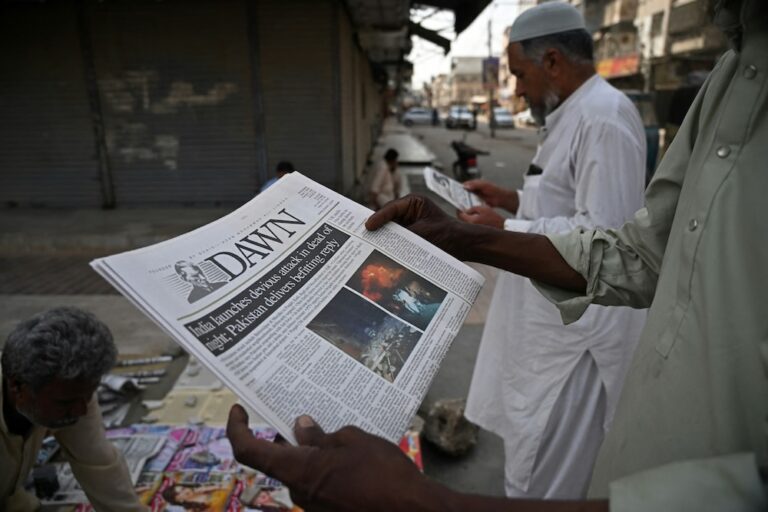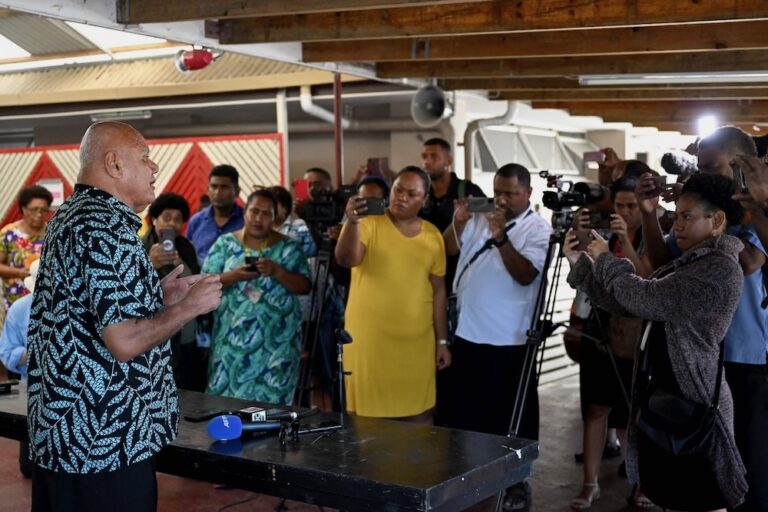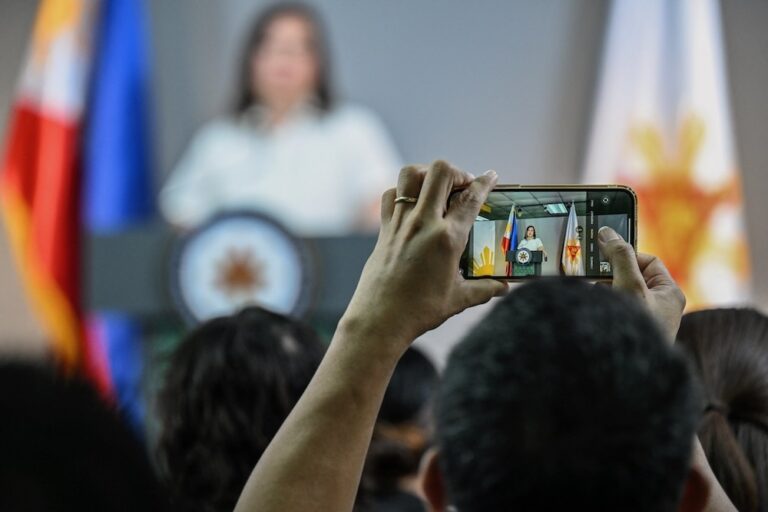May in Asia-Pacific: A free expression roundup produced by IFEX's regional editor Mong Palatino, based on IFEX member reports and news from the region.
The COVID-19 pandemic did not stop various governments in the region from imposing new laws and orders that further weakened democracy and human rights. China’s security law threatens Hong Kong’s freedom, a major broadcaster in the Philippines was forced to stop operating, Malaysia launched a crackdown on Rohingya refugees, and dozens have been charged in Bangladesh for sharing their views on the government’s COVID-19 response.
National Security Law will ‘destroy’ Hong Kong’s autonomy
China’s National People’s Congress approved a security law on 28 May which many believe will destroy Hong Kong’s autonomy. The law criminalizes acts of “separatism, subversion of state power, terrorism, and foreign interference” in Hong Kong. It allows Beijing to operate a security force in the territory. The new law could be used to silence dissent and undermine civil liberties.
Massive rallies have been organized in Hong Kong over the past year in protest against a Beijing-backed proposal to amend extradition laws and allow authorities to deport fugitives and criminals to mainland China. The protest movement succeeded in forcing the Hong Kong government to withdraw the bill.
The new security law is seen as part of Beijing’s plan to quell the burgeoning democracy movement in Hong Kong.
Protesters who denounced the security law and a pending Hong Kong bill criminalizing disrespect of the Chinese anthem were arrested by the police.
Tension remains high since authorities have also banned the holding of candlelight vigils to commemorate the 4 June 1989 Tiananmen Square Massacre.
Shutdown of Philippines’ largest TV and radio broadcaster
ABS-CBN, the Philippines’ leading media broadcaster, was forced to stop operating on 5 May after it received a cease-and-desist order from the government. The basis of the order is ABS-CBN’s expired franchise after Congress failed to take action on several pending bills proposing the extension and renewal of the company’s license to operate.
Philippine President Rodrigo Duterte has consistently threatened the closure of ABS-CBN over the latter’s alleged bias during the 2016 election campaign.
The Center for Media Freedom and Responsibility (CMFR) said the shutdown of a major media broadcaster “limits the possibilities of civic engagement and political participation.” It added that many Filipinos in remote areas are now deprived of access to information which undermines the country’s efforts in dealing with the COVID-19 pandemic. CMFR also emphasized that the closure of ABS-CBN has a chilling effect on the industry.
Media groups are petitioning the government and the Supreme Court to allow ABS-CBN to resume operations:
Various groups, including IFEX members, have signed a statement urging Philippine authorities to allow ABS-CBN to resume operations. “Our appeal to bring ABS-CBN back on air upholds the peoples’ right to information from which press freedom emanates.”
Hate speech against Rohingya refugees in Malaysia
84 civil society groups have signed a letter addressed to the Malaysian government about the surge in hate speech attacks directed against Rohingya refugees. The online attacks intensified when Rohingya leaders were falsely accused of demanding citizenship from the government. This was followed by a government crackdown on illegal immigrants and refugees. Even the spread of COVID-19 was attributed to the presence of Rohingya refugees.
The Rohingya are among the most persecuted ethnic groups in the world. The majority are refugees from Myanmar which refuses to recognize the Rohingya as among its citizens.
The groups asked Malaysian authorities to protect the rights of the refugees:
We urge you and your government to speak out in support of the rights of the Rohingya, emphasizing their status as refugees fleeing persecution and human rights violations and unequivocally condemning ‘hate speech’, intolerance and discrimination directed at the Rohingya community.
Arrested for ‘spreading rumours’ in Bangladesh
At least 50 people have been arrested in Bangladesh for allegedly spreading rumours about COVID-19 and the government’s handling of the public health crisis. Among those arrested in the past month included cartoonist Ahmed Kabir Kishore, writer Mushtaq Ahmed, activist Didarul Bhuiyan, and businessman Minhaz Mannan under the charge of “knowingly posting rumours against the father of the nation, the liberation war, and the coronavirus pandemic to negatively affect the nation’s image.”
The government has issued a circular prohibiting government employees, including doctors and nurses, from speaking to the media about the reported lack of resources in hospitals. They are also banned from posting, liking, commenting, and sharing social media posts that might “tarnish the image of the state” or the government’s “important persons”.
The Rapid Action Battalion, the country’s primary counterterrorism unit, has formed a “cyber verification cell” to identify rumours related to COVID-19.
The recent mass arrests have revived calls for the repeal of the draconian Digital Security Act which has been consistently used by authorities to persecute online critics.
Privacy concerns on tracing apps and other measures
As governments roll out COVID-19 measures, concerns have been raised surrounding the privacy implications of some of the contact tracing apps and other programs intended to collect data on public health.
In India, civil society groups have pressed for greater protection of the personal data of individuals. They noted that the source code of the Aarogya Setu COVID-19 app remains closed even if this widely promoted program collects sensitive personal information that can be used by authorities for other purposes.
In Malaysia, the government unveiled the Gerak Malaysia and MyTrace apps for COVID-19 contact tracing. Jac SM Kee of the Centre for Independent Journalism pointed out the absence of checks and balance mechanisms as well as safeguards against potential abuse in using the data gathered from these apps.
In Pakistan, Haroon Baloch of Bytes for All said there should be accountability in accessing the data of consumers. He added: “Aside from the fact that most of the data is being collected without seeking prior informed consent, there are serious concerns about the integrity of data controllers and data processors, data retention, security protocols employed by the data controller and processor, oversight, and remedial mechanisms.”
Violence against women journalists in Pakistan
In a submission to the United Nations Special Rapporteur on Violence against Women, Media Matters for Democracy highlighted the systematic and cultural challenges faced by women journalists in Pakistan. The report underscored the low number of women journalists, the workplace harassment they continually encounter, the lack of a law that focuses on cyber violence against women, and the limited access to justice that hinders victims’ ability to come forward and expose their tormentors.
In brief
The dead body of missing Pakistani journalist Sajid Hussain was found in the Swedish city of Uppsala. The Balochistan Times news website editor was last seen on 2 March. He was a political refugee who left Pakistan eight years ago.
In Australia, the proposed International Production Orders law will allow security officials to access the personal information of citizens that is held by US information technology organizations. The Media, Entertainment & Arts Alliance has warned that the law will “further erode press freedom because it ignores the need for a warrant to access journalists’ telecommunication data.”
In Cambodia, 133 civil society groups have signed a statement calling for the release of imprisoned journalists Sok Oudom and Sovann Rithy and to halt all harassment of other journalists in Cambodia facing prosecution for their critical reporting.
And finally, in Tibet, authorities have used “gang crime” charges under a law that was passed in January 2018 to sentence dozens of Tibetans to up to 9 years in prison for peacefully petitioning or protesting issues related to religion, environmental protection, land rights, and official corruption.



